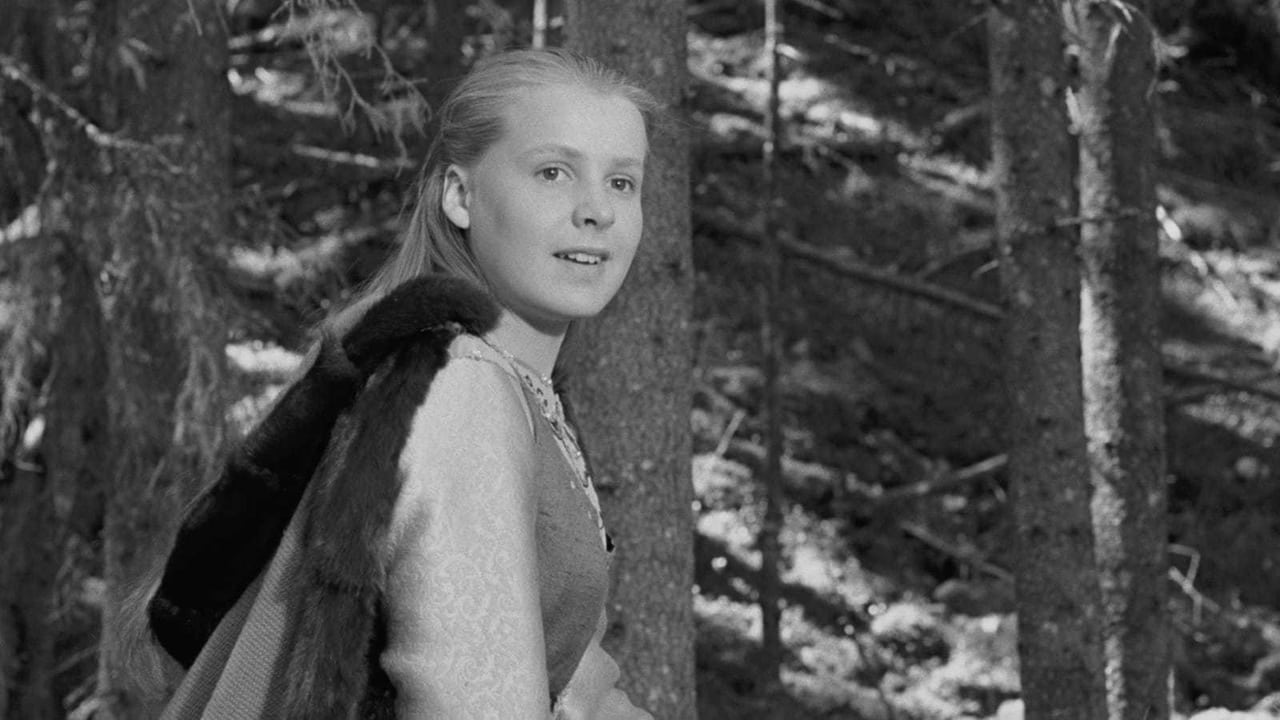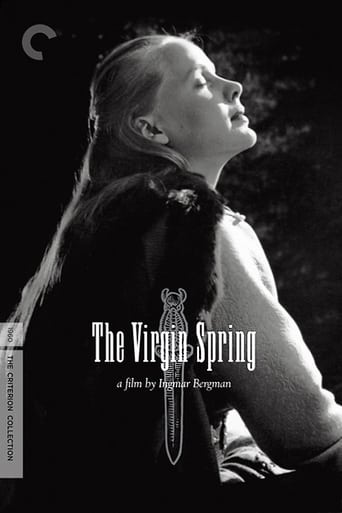

Slow pace in the most part of the movie.
... View MoreSelf-important, over-dramatic, uninspired.
... View MoreDreadfully Boring
... View MoreThe movie's not perfect, but it sticks the landing of its message. It was engaging - thrilling at times - and I personally thought it was a great time.
... View MoreWhy do you want to see a movie of stone age? What is the magic flavor of it that films nowadays do not possess? Bergman's film reminds me of his profession of theatre constantly. His film, in every aspect, the theme, the setting, the scenes and the acting, is dedicated to a ritual intent. In many of the scenes, you might feel, if it's a 21 century movie, the original 5-min shots can be shortened to 30 secs. But strangely you seldom feel tedious watching these slow paced shots. Because more information (or feelings) is presented other than the set of plots. (Imagine how boring it would be if you simply tell a story of raping and revenge.) The extra information, in Bergman's case, is theatre- styled. It's not like the nowadays long shot that tries to give you a natural feeling or to immerse you in the setting, but more like a stage presentation. The position of actors, their reaction and their movements are subtly designed. The position implies the relation of people and makes part of the ritual. Every small reaction and movement conveys meaning, serving for communication, sometimes between characters, sometimes to themselves. This meaning is not meant to be life like, but more a symbolic one. The communications make most of the experience of the film, in another word, they do not serve story telling, they are the purpose of themselves. The modern technology changes story telling a lot, but this sense of theatre is timeless.
... View MoreI saw "The Virgin Spring" 54 years ago in 1960 when it first came out. At the time it seemed like the most realistic movie I had ever seen, and I still feel that way today, although I have not seen it since that time. (Another movie that has a comparable level of realism is "Das Boot", but that is based on a true story.) My memories of the movie are still vivid, especially the scenes of people eating at a crude table without modern utensils and von Sydow preparing himself by whipping his own body in a sauna. 14th century rural Sweden was portrayed so convincingly that I felt I was *in* the movie. To pull off the realism the acting and cinematography had to be outstanding and it was. Also, the plot was very carefully crafted, and for the time era and location it was a perfect fit.
... View MoreI watched 'The Virgin Spring' (1960) on TCM today. It's a Swedish film with English subtitles directed by Ingmar Bergman. If the definition of a horror film is one that scares you by what you see and hear in even just a few of the scenes, then this is a horror movie IMO. For instance there is one scene where the sweet and innocent victim realizes what is about to happen to her. That scene for me was spine chilling. Chilling because these horrors really happen, unlike monsters from space or whatever. It was mesmerizing to watch beginning to end, subtitles and all. I was never a big Bergman fan in years past, probably because I didn't devote the time to his films. I'm only now starting to appreciate his vast talent for story telling and imagery. This is one of those times I wish I was a decent writer so I could put into words what I want to express about this story. I''ll put it simply in my words. The story is about a well to do very religious small family in what I took to be the middle ages. The two parents have farmhands, servants and one young, maybe 17 year old, daughter who is their pride and joy. They send their daughter on a short sort of pilgrimage to bring candles to their church. She is expected back that same day. During the course of her short journey she meets with disaster because she is naive about strangers. Later by a strange turn of events, the parents get their revenge for what happens to her. And do that get even ! I don't want to say much more about the plot. I will say it's obvious that the 1972 horror film 'The Last House on the Left' was roughly based on this much superior story. 'TVS' can be taken as a straight plot of loss and revenge or it can be analyzed much deeper. With this story Mr. Bergman makes us think hard about the nature of God, jealousy, vanity, revenge, regret and even forgiveness. It's the kind of film that will stay with you long after it ends. I do my best to keep these comments short, this is getting long, so I'll end by saying 'The Virgin Spring' was an amazing example of film making at its best.
... View MoreAs part of my Bergman marathon, some for the first time, some for more, I watched The Virgin Spring, and was blown away. The film is not just a stark study of the cruelty and superstition of the Middle Ages but also a very powerful revenge story that is dripping with symbolism, though not too much to overshadow the storytelling. The story may be bleak, this is often considered one of Bergman's bleakest and most hard-hitting films, but always compelling and moving, the ending especially is miraculous. As ever with Bergman, The Virgin Spring is superbly directed and very atmospherically photographed(I did have difficulty believing that this was Sven Nykvist's first collaboration with Bergman, and I mean that as a compliment). It also has a haunting score and a thought-provoking screenplay. The scene with Karin being murdered is harrowing, and I think it really stays with you. The acting also has a lot of intensity, I especially want to single out Max Von Sydow, who is magnetic in presence and equally telling in his facial expressions. Overall, a brilliant film. 10/10 Bethany Cox
... View More